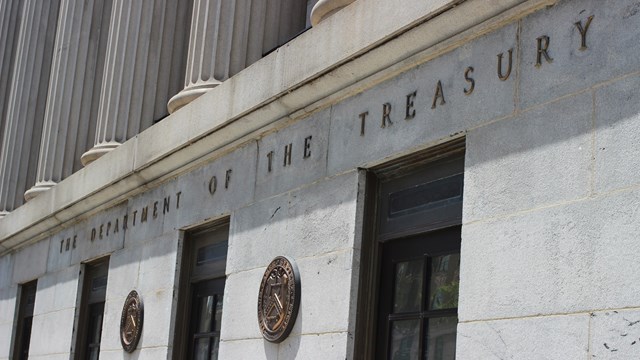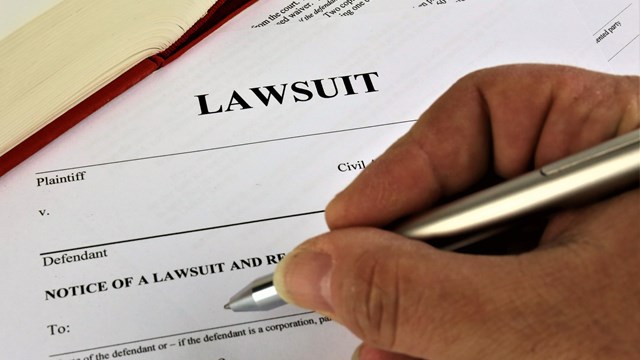Unlike the ordered governance of cooperative corporations and condo associations in places like New York City, New Jersey's community and homeowner associations largely govern themselves, with little oversight from the state and no standardized procedures or best practices. The result is a patchwork of rules and regulations, and occasionally great disparities between how developments —sometimes even in neighboring subdivisions—operate and run their associations.
That may be changing, however. Topping the list of legislative initiatives in the New Jersey legislature is the Uniform Common Interest Ownership Act, or UCIOA. The initiative's aim is to promote uniformity when it comes to the monitoring and registration of homeowner associations. Two versions of the proposed bill have been put forward, one by Democratic Senator Joseph Doria, D-31, representing Hudson County, and Assemblyman Wilfredo Caraballo, D-29, representing Essex County, and the other by Senator Shirley Turner, D-15, representing Mercer County, and Assemblyman Christopher "Kip" Bateman, R-16, representing Somerset County.
In summary, the Doria/Caraballo companion bill package (S2344 and A3855) creates a uniform law applicable to co-ops, condos, homeowner associations, timeshares, and leasehold associations; defines a standard set of approaches to alternative dispute resolution; and, establishes board and owner rights in areas such as fair elections, access to records, conflicts of interest, publication of board meeting minutes, gaining access to individual units, and imposing fines when necessary. The Assembly's version of the bill (A3855) passed the House by a vote of 65-7-5 on May 16, 2005, and the Senate's version (S2344) was referred to the Community and Urban Affairs Committee on May 19th for future action.
The Turner/Bateman companion bill package (S2016 and A3988) imposes a $6 registration fee on community association homeowners to fund programs that may be required by the state's Department of Community Affairs (DCA), the Council on Affordable Housing (COAH), and other governmental organizations; creates a governmental advisory council with homeowner members; gives DCA rule-making authority over community associations; creates a government-funded alternative dispute resolution process; establishes new rules on association meetings, including the right to record other homeowners; establishes new rules on election and voting procedures and use of community facilities; and, authorizes changes in assessment collection procedures. The Turner/Bateman version of the bill was introduced and referred to appropriate House and Senate committees.
The proposed legislation has deeply divided both homeowners and such associations as the New Jersey Apartment Association (NJAA), and the Community Association Institute of New Jersey (CAI-NJ). While some argue that the proposed initiative will create a more equal distribution of power and responsibility, others say it will detract from associations' ability to function on a daily basis.
UCIOA Means Equality for All
Historically, New Jersey common interest communities have been regulated under the state's Condominium Act, a law with limited scope that has been subject to a number of complaints lodged with the Department of Community Affairs by homeowners in some of those communities. The legislators behind the UCIOA feel that those limitations and complaints are grounds for rethinking the whole system.
According to Jim Griffin, spokesperson for Senator Turner, "Senator Turner saw it necessary to strengthen some of the laws governing those communities. [HOA boards] are quasi-governmental entities that currently are governed by corporate laws, rather than by governmental transparency laws."
Griffin goes on to say that communities often hear complaints that the voting process and things like fining procedures are not fair or democratic, and says that the proposed UCIOA bill will provide more oversight of those communities. "It will help make sure that their bylaws and governing documents provide a fair and democratic means for property owners to have a say in their communities," Griffin says.
Senator Doria says that the rules and regulations created by the bill will be clearer than those that presently exist. "The legislation was the result of almost a year's worth of work by the Department of Community Affairs of the state of New Jersey. Its purpose is to attempt to amend and codify a number of issues that relate to the operation of co-ops and condos." He says currently there isn't much legislation that deals with New Jersey co-ops and that most of the condominium legislation was printed back in the 1970s. UCIOA, he says, "will update some of the issues as they relate to the actual operation of co-ops and condos."
Rights and Responsibilities
Doria says his legislation (S2344) will create not only a uniform system of enforcement but also of information and processes for all associations. "It establishes for the first time a very balanced, detailed approach to dispute resolution that starts with mediation and ends with arbitration, which is binding if the parties agree to it." In addition, says Doria, "It balances the rights and responsibilities of the owners with those of the association."
Everyone has rights and responsibilities, Doria explains, and they all must work together in a cooperative matter. Standardizing and spelling out these rights and responsibilities is especially important when it comes to things like bidding on contracts, accessing records, holding fair elections, avoiding conflicts of interest, settling board/member issues, getting access to private units to do repairs, and determining not only what authority exists to impose fines, but also what kinds of fines would be imposed.
"[The UCIOA] would create a kind of uniformity and strike some balance between rights and responsibilities," Doria says. The bill will apply to such issues as borrowing money, making sure that the common property is properly maintained, and set the rules and regulations for governing associations.
Meet the Opposition
Opposition from community associations arises from the fact that, as Doria points out, "[The bill's purpose] is to create one law that is applicable to all forms of community associations—condos, co-ops, homeowner's associations, timeshares, and community associations—which doesn't exist right now. It also establishes some consistent set of powers and limitations that will apply to all types of associations."
Griffin says one of the reasons organizations like CAI-NJ and the NJAA are opposed to Senator Turner's and Assemblyman Bateman's legislative proposal is because "It does require more regulation of these organizations. It takes away some of the power that the governing boards have and puts it into the hands of individual homeowners."
In addition, he continues, it puts a $6 fee on every homeowner to fund the new provisions in the law, as well as some of the new arbitration requirements for disputes. "They all need to have a funding source," Griffin explains, "and in New Jersey's budget climate it's pretty much required that if you're going to find a new way to spend money, you have to find a new way to raise money. It's unfortunate, but that's how many state budgets are running right now—they're very tight. Nevertheless, says Griffin, "This bill is something that many homeowners feel is necessary." He says homeowners want their rights protected when they go up against the governing associations.
J. David Ramsey, a principal and chair of the Real Estate Practice section of Ramsey Berman, a law firm based in Morristown, which is also a member of CAI-NJ, disagrees, and says a combination of drafting and substance issues makes the Turner/Bateman version of the bill unpalatable to homeowner's associations.
"It's a very badly drafted bill," he says. "It attempts to use a 30-year-old piece of legislation—the Condominium Act—and modify it by adding on layers of new legislation. The bill ends up becoming a patchwork quilt with many gaps and provisions that are ambiguous or difficult to understand, because it wasn't drafted as a cohesive whole." From a substance point of view, Ramsey continues, several of its provisions are so radical that in trying to protect homeowners' rights it prevents associations from performing vital duties on the behalf of owners.
Signing the Bill into a Law
Although the two proposed versions of the UCIOA bill —as well as the provisions set forth by the bill itself—are being heavily contested in the state legislature, Doria says that "Everyone agrees that something has to be done. There's some conflict between competing bills in the Senate, and we're trying to negotiate that and come up with the best possible piece of legislation." He says there's always the chance that the bill will be amended for improvement, but that it's a matter of determining what those amendments would be. "That's what we're working on right now—to try to get the two bills to be similar and to get everyone to agree," Doria explains.
Al Wally, a homeowner in Twin Rivers HOA, which is a member of the Common Interest Homeowner's Coalition, says he believes the Turner bill has more positive aspects to it, and provides more governmental oversight with the installation of an ombudsman to monitor HOA operations, than does the Doria bill. However, whatever bill finally reaches passage should have "some teeth put into it" or they will be ineffective in providing real reform, says Wally.
Griffin says another bill in the Senate is also seeking to add some regulations to community organizations. "Both bills right now are awaiting hearing in committee," Griffin says, "Though they'll most likely try to find some type of compromise between the two bills, and that compromise bill will most likely move forward before the summer recess." The UCIOA bill, he says, is currently the major issue that most associations are following. "This is the major thing that's out there for homeowners right now," he says, although he adds that they also will be following budgets closely.
Concerning the Turner version of the bill, Ramsey feels that, "Unless you threw it out and started all over again, the patchwork drafting just can't be fixed by being amended. It has to be redone." He says there's no reason to use legislation that "everyone agrees is grossly out of date" as a foundation, and that "once you do that, you can never build a structure that will be sound." Although Ramsey says he does not think the Turner bill can be amended, he believes some of its provisions can potentially be incorporated into Doria's version of the bill, which CAI-NJ is supporting.
Ramsey believes that Doria's bill "is more workable overall, because it is a cohesive bill that is based upon a model bill drawn by the Uniform Law Commissioners, which is a national organization." He says that bill was originally drafted by national experts from different spectrums of professional life that deal with community associations and that it represents a balanced, holistic approach.
"A version of our bill has been pending since the 1990s," Ramsey says. He believes that Senator Turner's bill borrowed provisions of Doria's bill and then "grafted" onto it sections of the Condo Act, along with other provisions.
Lobbyists Welcome
Lobbyists from such organizations as the CAI-NJ's Legislative Action Committee, or LAC, the NJAA and the C-IHC are not only a welcome presence in the arbitration process, but also a somewhat necessary addition. "They have input into the process like everyone else—they testify before committees, they provide their input, and they work through the process," Doria says.
"Everyone is encouraged to testify before these committees when the bills go up and bring their input and potential problems before the committee that might have been overlooked before—as well as potential solutions and compromises," Griffin says.
Ramsey says lobbyists can help influence the direction of pending legislation "Just by talking to legislators, explaining the differences between the two bills, explaining the public policy and why we believe we have the superior policy." By doing so, he says, "We hope we would persuade legislators that our bill is the more balanced bill."
Other Matters of Interest
In addition to the UCIOA, the NJAA is also concerned with legislation pertaining to multifamily housing. Connor G. Fennessy, director of government affairs for the NJAA, says that "In 2004, repeal of the so-called 'mansion tax' on multifamily rental housing was a major victory for owners and renters alike." He says the state legislature saw that multifamily housing was being swept under the additional one-percent realty transfer fee originally intended for mansions over $1 million. After a concerted effort by multifamily owners, Fennessy says, legislation was passed and signed into law by Acting Governor Richard Codey to correct this drafting error in the original bill.
As for 2005, Fennessy says the NJAA is monitoring legislation that affects the affordability and viability of multifamily rental housing throughout New Jersey. "Issues like additional fees and surcharges for certificates and permits, or the ability of municipalities to charge higher fine levels, continue to drive up the cost of rental housing for everyone," he says. "New Jersey needs a comprehensive housing strategy that will lead to new, innovative ideas to help hold the line onincreases in fees, taxes,surcharges, insurance costs, fuel costs and health care expensesthat continue to exert upward pressure onthe overall cost of housing."
The NJAA, for example, was instrumental in shepherding legislation calling for safer stairways in high-rise buildings. The legislation, S1963, sponsored by Senator Robert Singer, R-30 and Senator Nia Gill, D-34, requires high-rise structures to mark all exit pathways with luminescent materials to facilitate emergency evacuations in the dark. Introduced as a measure recommended in the 9/11 Commission Report, the addition of glow strips to handrails and stairs at the Twin Towers after the 1993 bombing facilitated the successful evacuation of many survivors on 9/11. NJAA was able to secure a key amendment to S1963 exempting high-rise multi-family buildings that already have smoke lobbies, elevator fire recall systems and backup lighting in emergency stairways. The bill passed the Senate unanimously on February 14 and is awaiting action in the House.
Other proposed legislation under consideration in Trenton includes child window guards, standby water service, home inspection licensing, dispute resolution, and property tax appeals provisions.
Although at this point it remains uncertain which version of the UCIOA initiatives will actually be adopted, UCIOA remains the major legislative initiative that most associations and homeowners alike—as well as The New Jersey Cooperator—are following closely.
Michael McDonough is a freelance writer living on Long Island.







2 Comments
Leave a Comment